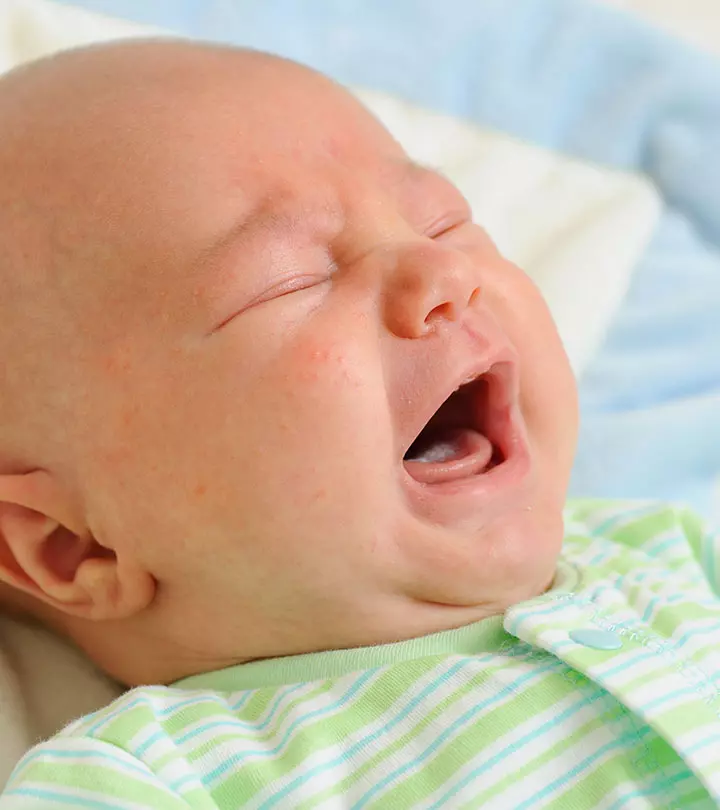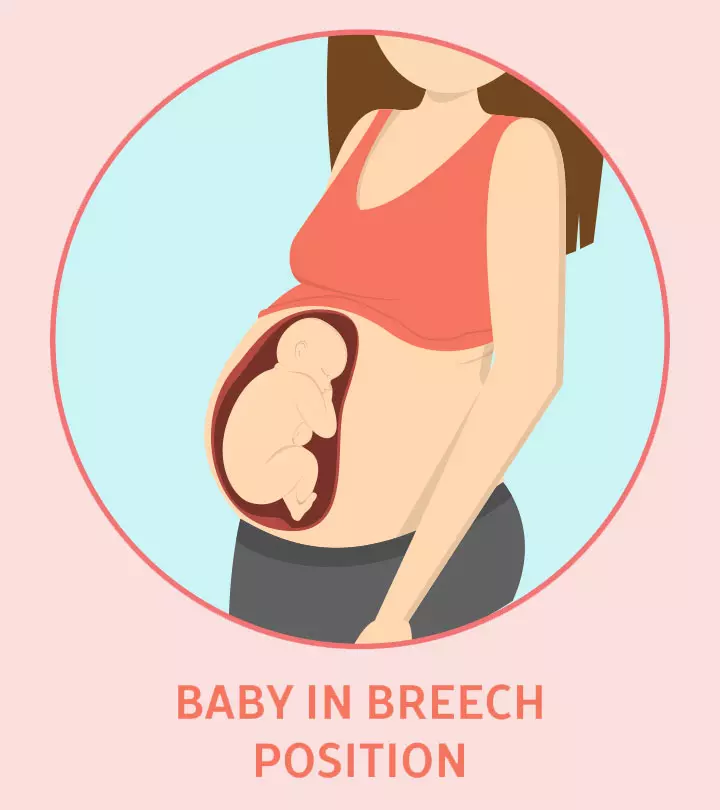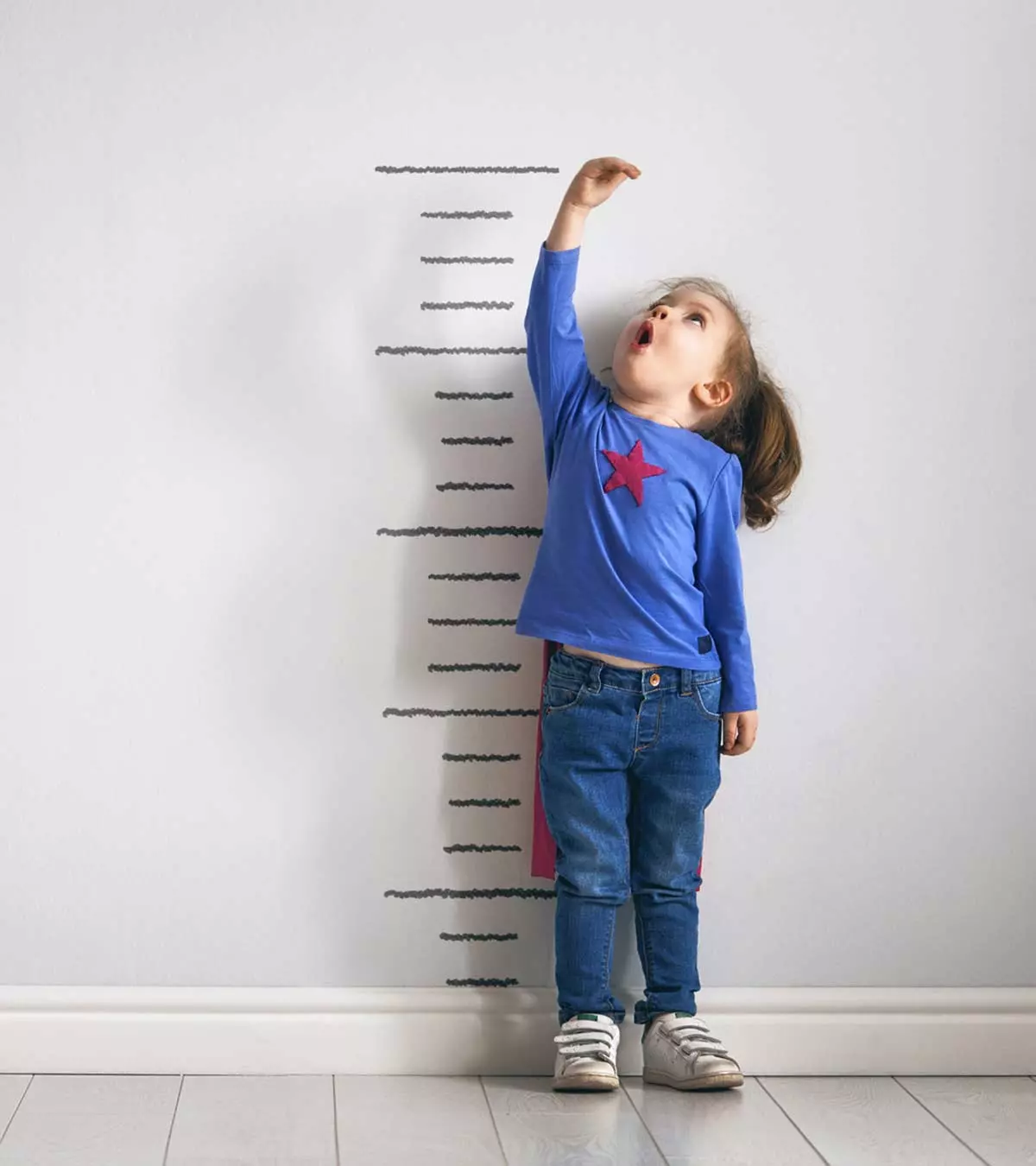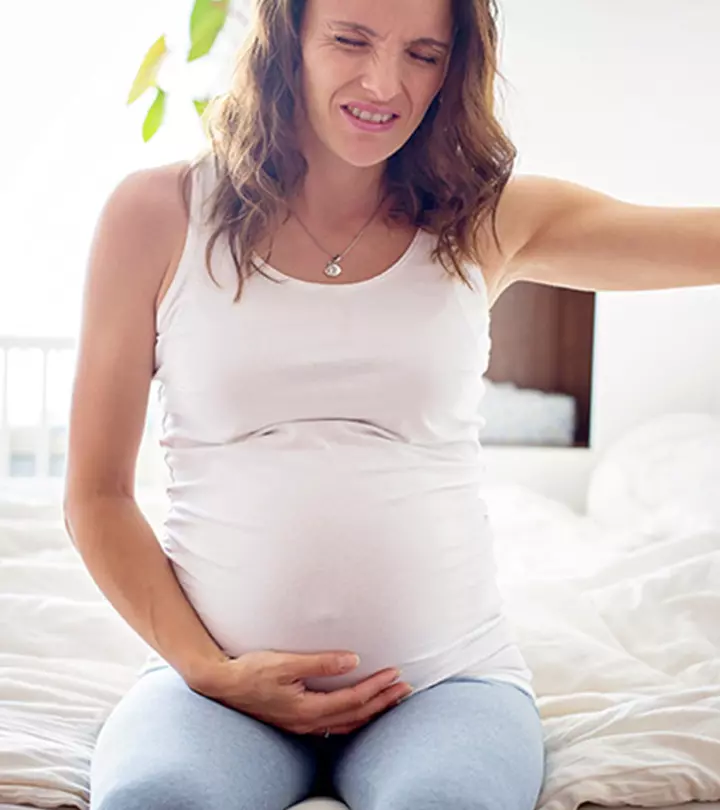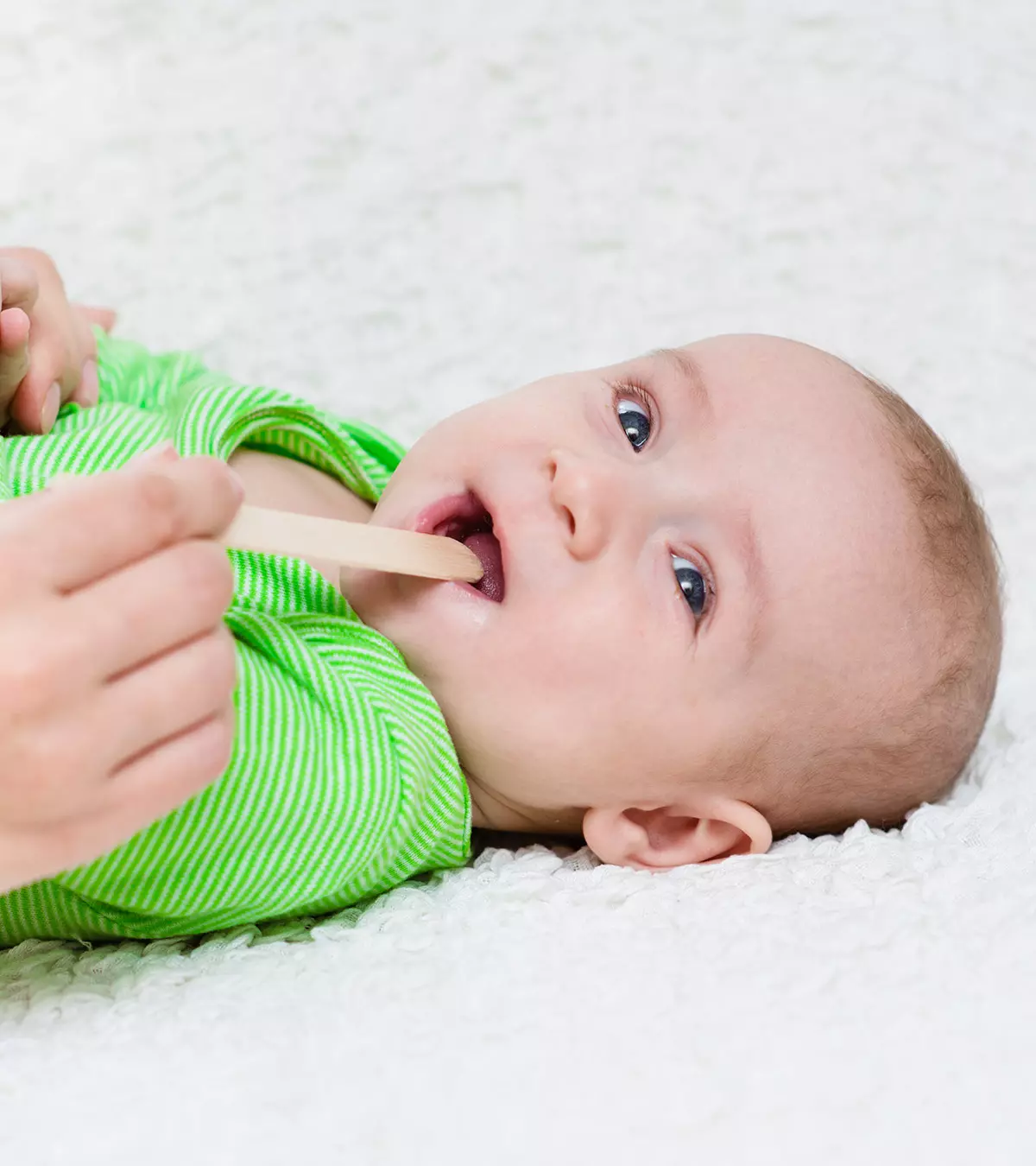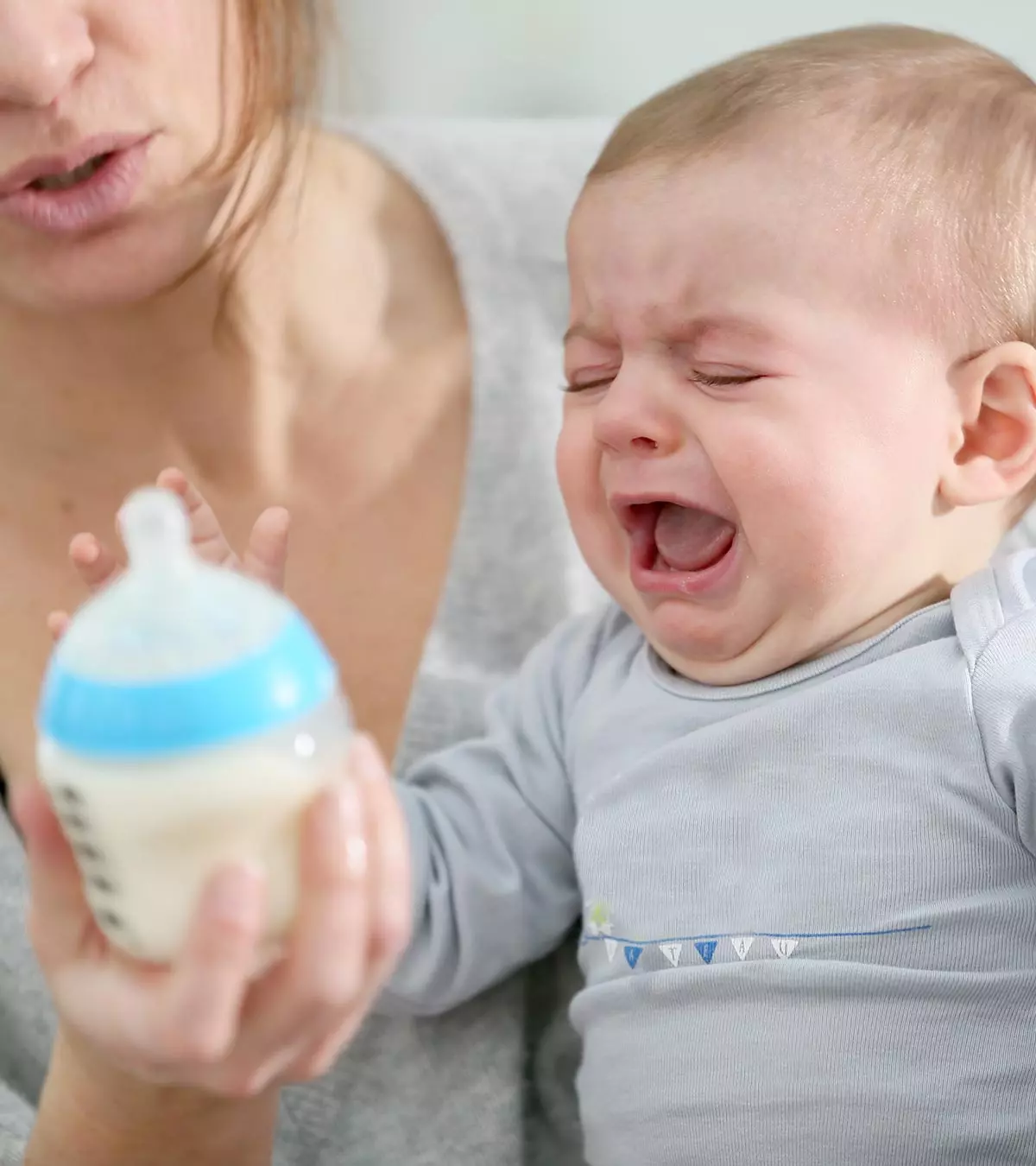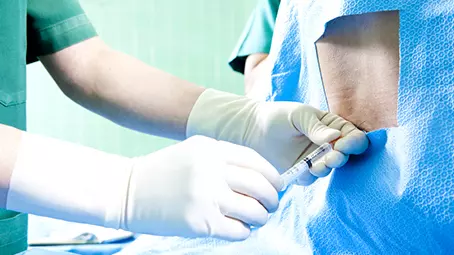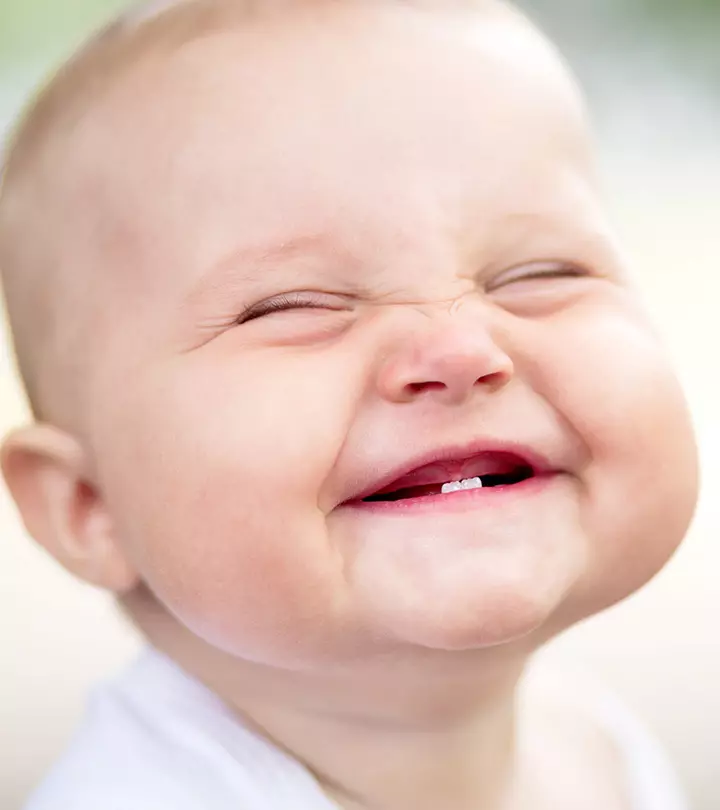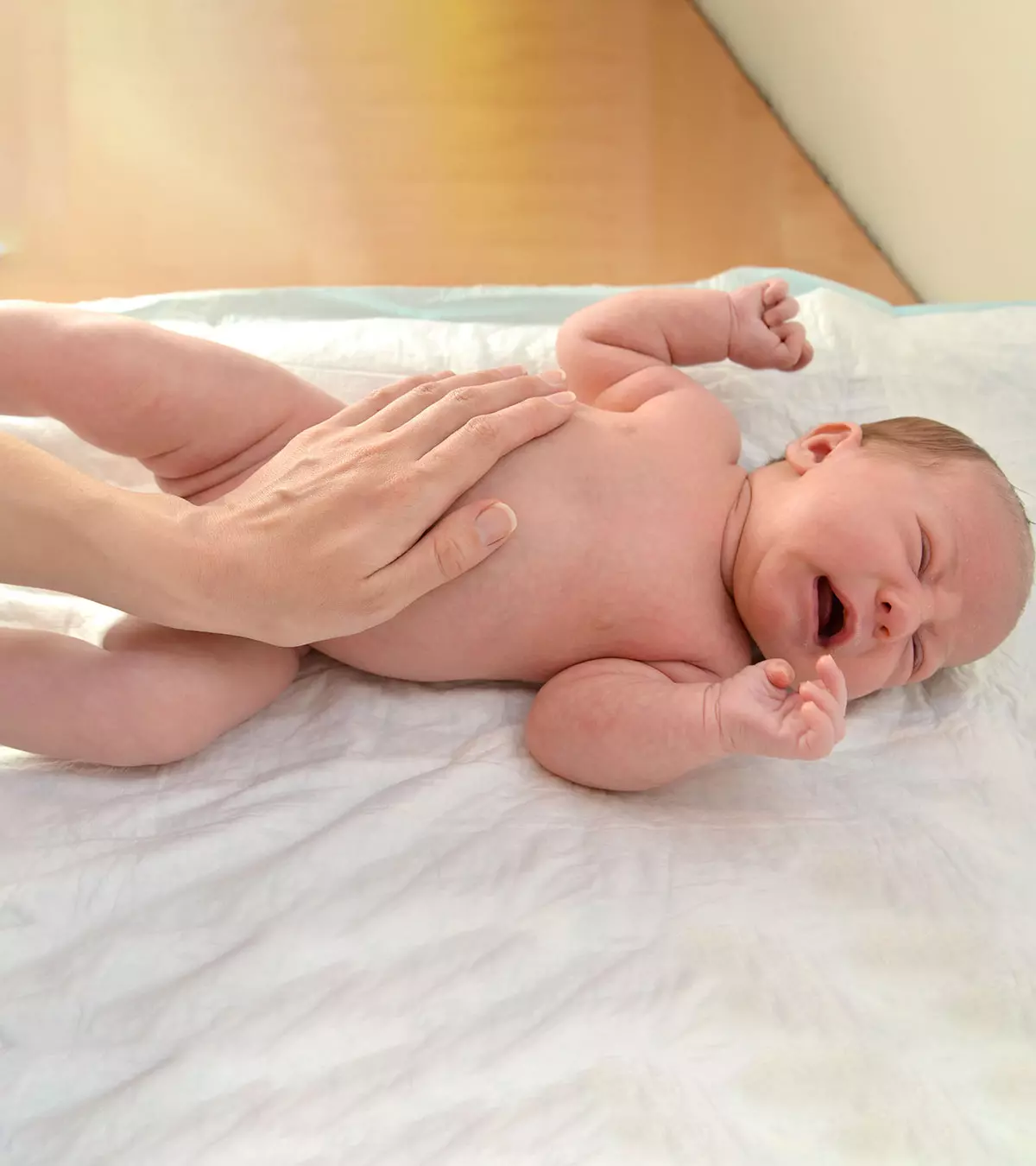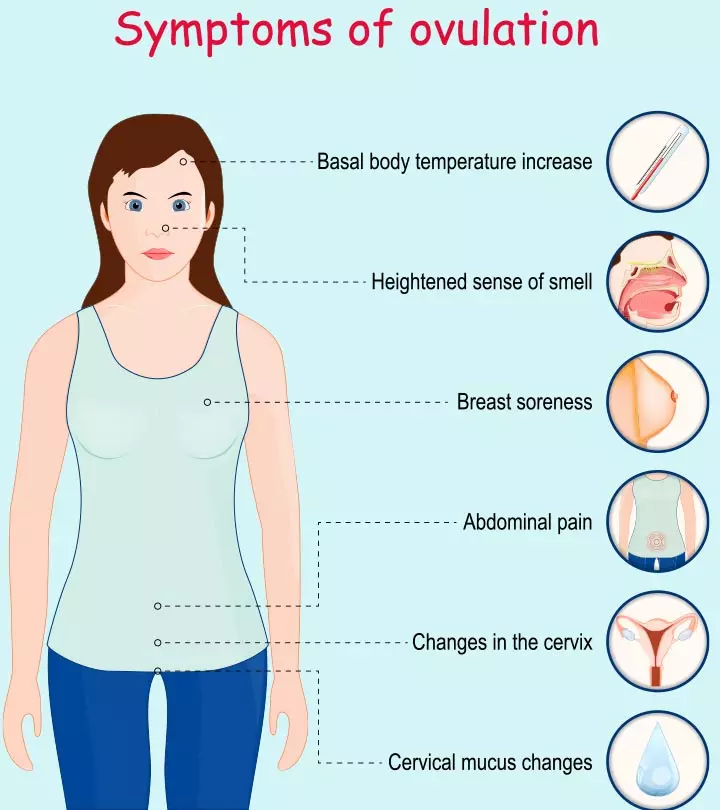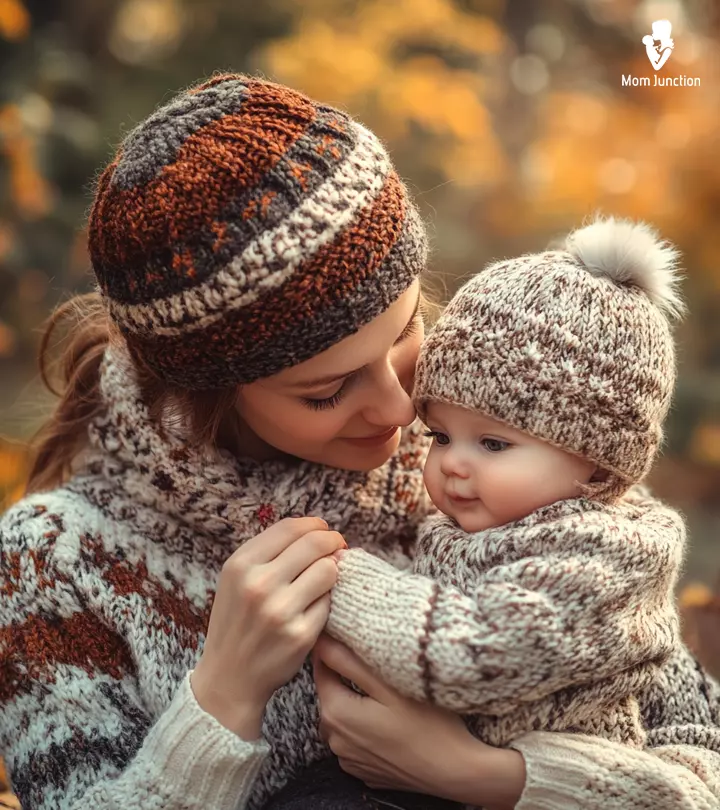
Image: Midjourney/ MomJunction Design Team
There may be times when you notice your baby with cold hands while the rest of their body seems normal. A baby’s hands can be colder due to the surrounding temperature or how babies regulate body heat. While cold hands are usually not a cause for concern, they can sometimes signal underlying health issues that need medical attention. If cold hands persist or happen frequently, consult your child’s pediatrician.
Read on to learn about the causes of cold hands, how babies regulate body temperature, and when to seek medical help.
Key Pointers
- Babies may have cold hands and feet due to immature thermoregulationiAn ability of the body to maintain its internal temperature and various other infections.
- Issues with blood circulation can also cause babies’ cold hands and feet, requiring medical care.
- Whenever there is an issue, keeping a thermometer and measuring the baby’s body temperature can assist in seeking medical treatment.
Reasons A Baby Has Cold Hands
The causes for cold hands in babies can vary from a simple reason, such as the cold temperature outside, to a complicated underlying medical condition
. Thus, it is important to monitor your child closely and understand why your baby has cold hands. Here are a few possible reasons.
1. Immature thermoregulation
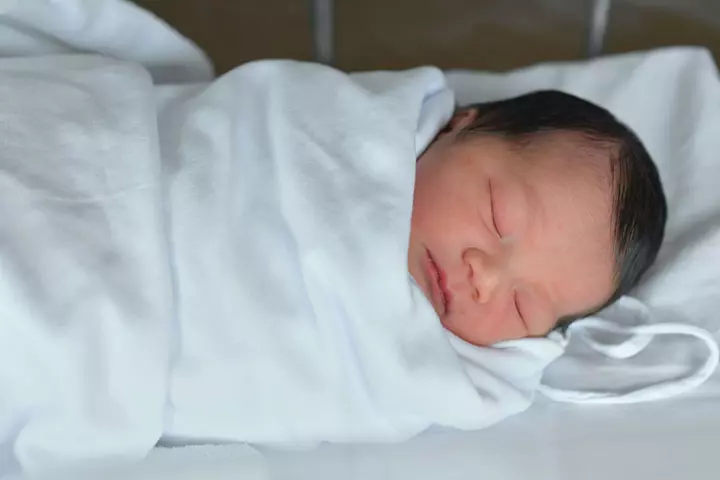
Image: Shutterstock
Newborns would be unable to maintain their core body temperature without external thermal protection. Due to their high body surface area to weight ratio, babies tend to lose heat by evaporation (1).
This is why it is advised to cover your baby’s head, legs, and hands with an extra layer to prevent the loss of heat from the body by evaporation after birth.
 Quick fact
Quick fact2. Blood circulation
As a baby’s blood circulatory system is underdeveloped, the blood may not be able to carry the oxygen to the hands and legs effectively. This lack of oxygen may cause cold hands in babies and may manifest through a bluish discoloration of the skin, a common condition called acrocyanosis. Other parts such as ears, nose, lips, and nipples may also be affected.
Acrocyanosis in babies can be influenced by various factors. Cold climate and low body mass index may increase your baby’s risk of developing this condition. Episodes of acrocyanosis usually subside as soon as the baby’s body gets used to the blood circulation (3).
3. Sepsis
Sepsis is the body’s ultimate response to an infection.
Identifying sepsis at an early stage is crucial to prevent serious consequences. Sepsis is often preceded by an infection, such as a urinary tract infection, pneumoniaiA bacterial or viral infection causing inflammation in the air sacs , or skin or bone infection.
Along with cold hands and feet, sepsis is also characterized by low fever, fast heart rate, rapid breathing, pale skin, nausea, vomiting, dry diapers for more than 12 hours, etc. If you spot any of the above symptoms, it is important to seek medical assistance, as untreated sepsis can lead to mortality (4).
According to the MSD Manual, early-onset sepsis, occurring within the initial three days after birth, carries a mortality rate ranging from 3-40%. Late-onset sepsis, manifesting after the first three days of neonatal life, has a mortality rate between 2-20%. The fatality rate is 2 to 4 times higher in low birth weight (LBW) infants.
4. Fever
Cold hands could also be a symptom of fever
. If your baby’s body temperature is above 100.4℉, they might be suffering from fever. A fever is usually a sign of your baby’s body trying to fight off a bacterial or viral infection. If your baby’s forehead is hot, but their hands are cold, do not worry, as it is a common sign of fever in babies. According to Dr. Joanna Perdomo, MD, MPH, FAAP, a pediatrician at Nicklaus Children’s Pediatric Care Centers, Florida, “Fever can cause cold hands and feet, as the blood is sent away from the limbs to the body’s core organs to fight off what is causing the fever. Treating the fever should help the cold hands and feet warm up.”
Other general symptoms of fever include:
- Shivering or chills
- Fatigue or tiredness
- Lethargy
- Feeding issues
- Cold (sneezing, runny nose, or sore throat) (5)
- Headache
- Body ache
A mild fever might subside on its own. Keep monitoring their temperature and give them a cold compress occasionally.
5. Hand, foot, and mouth disease (HFMD)

Image: Shutterstock
HFMD is a contagious infection seen in babies. It is generally not serious but can be uncomfortable. It usually starts with cold-like symptoms, such as loss of appetite, coughing, high temperatures, and a non-itchy rash on the hands, fingers, feet, buttocks, and knees.
Cold hands could be one of the last symptoms of hand, foot, and mouth disease. Take your baby to the doctor if you notice cold hands and feet, signs of dehydration, and rashes that become swollen and red and discharge pus (6). As this is a viral infection, it would subside within a week. You may ask your baby’s doctor to prescribe some fever medications.
6. Meningitis
Meningitis is an inflammation of the lining around the brain and spinal cord caused by a bacterial or viral infection. Cold hands and feet are among the first symptoms of meningitis. Diagnosing this disease is a challenge as the initial symptoms appear like a common cold or flu. The condition, however, deteriorates rapidly.
If your baby shows any of the following symptoms, take them to your pediatrician.
- High temperature
- Extreme sleepiness
- Difficulty breathing
- Extreme shivering
- Vomitings
- Refusal to feed
- Muscle aches (7)
 Quick fact
Quick fact7. Other causes
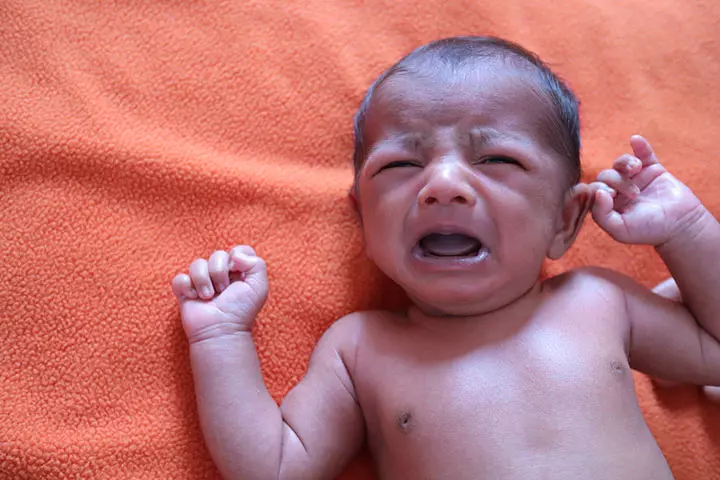
Image: Shutterstock
Your baby may also have cold hands due to some other underlying issues. If your baby’s body has problems related to blood circulation, it might show additional signs such as blue lips and blotches on the skin. These could be due to
- CongenitaliA condition or situation existing right from birth heart diseases (8).
- Lung and blood circulation issues.
If your baby has constant cold hands and shows other signs and symptoms, it is best to immediately take them to your pediatrician.
Treatment For Babies With Cold Hands

Image: Shutterstock
The treatment for cold hands depends on the underlying cause. If your baby has occasional cold hands, do not worry, as this is normal until they are able to control their body temperature.
Here are a few common treatment options.
- If your baby’s hands feel cold, check their torso and stomach areas. As long as the central parts of the body are warm, you need not worry. Cover your baby’s head with a cap and wrap them in extra layers. Also, put on mittens and socks for their hands and legs. Check your baby’s hands after 20 minutes to see if they are warm.
- Talk to your pediatrician about the Kangaroo care method. This method can help you provide the natural warmth your baby’s body needs. Remove all your baby’s clothing except the diaper, place your baby against your chest, and cover yourself with a warm blanket (9).
- Check the room temperature of your baby’s nursery. The ideal room temperature for babies should be between 68°F to 72℉. A cold room may increase the risk of cold stress in babies due to vasoconstriction that occurs to prevent heat loss (9) while an overheated room can increase the risk of sudden infant death syndrome in babies.
- If your baby shows any abnormal symptoms, it is best to consult your doctor. They may run some tests and recommend the best treatment.
 Be watchful
Be watchfulWhen To Call The Doctor?
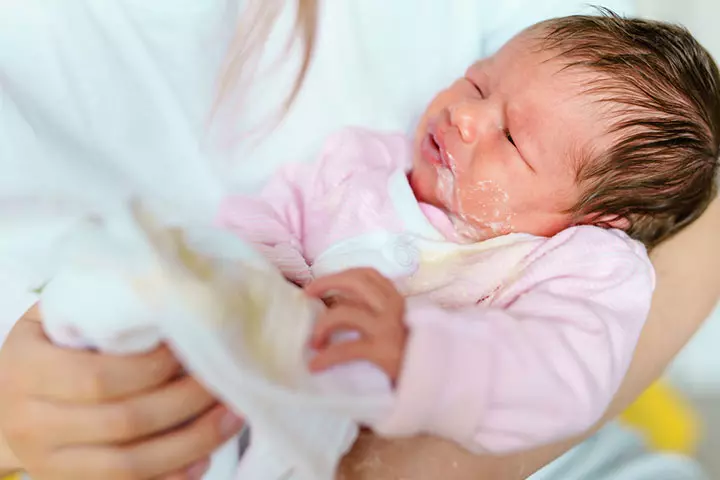
Image: Shutterstock
The normal body temperature for a baby is about 97.52℉ (12). If your baby’s hands feel cold, check their body temperature and cover them in layers. However, if this doesn’t warm their hands, and you find the following symptoms, seek medical attention immediately.
- Vomiting
- Diarrhea
- Central body parts becoming cold
- Lethargy
- Unexplained rashes
- SeizuresiA sudden, temporary, and uncontrollable electrical activity in the brain
- Fussiness
- Loss of appetite
Frequently Asked Questions
1. Does malnutrition cause cold hands in babies?
Yes, malnutrition may cause cold hands in babies. Studies show that malnourished infants cannot regulate the heat production in their bodies and thus cannot maintain a normal temperature (13).
2. Is it okay if my baby’s hands are cold at night?
Dr. Perdomo observes, “Low blood pressure could make baby’s hands and feet cold because in this state, the blood flow is routed to the most important organs, such as the heart and brain. However, this usually occurs with other symptoms such as low energy or lethargy, illness, poor feeding, or congenital heart conditions and other medical problems.”
4. Does anemia cause cold hands and feet in babies?
“Anemia can cause cold hands and feet due to a decrease in the amount of oxygen being delivered by red blood cells throughout the body. This could be something to consider if a baby’s hands and feet are chronically cold in the absence of illness or weather changes. In otherwise healthy babies, the most common form of anemia is iron deficiency anemia,” observes Dr. Perdomo.
Occasional cold hands in babies aren’t usually a cause for concern. Babies can have cold hands and feet due to harmless reasons such as cold weather. However, it could also occur due to underlying health problems, such as hand, foot, and mouth disease (HFMD). Cover your baby’s head with a cap or wrap them in extra layers of clothing if your baby has cold hands but their torso and stomach are warm. Consult your doctor promptly if the baby with cold hands has other symptoms, such as unexplained rashes, vomiting, or diarrhea.
Infographic: What Should You Do If Your Baby Has Cold Hands And Feet?
Look for the possible causes and coexisting symptoms when you notice cold hands and feet in babies. Simple measures can manage some conditions at home, while a few may require medical care. Read through the infographic to know what to do when your baby has cold hands and feet. Illustration: Momjunction Design Team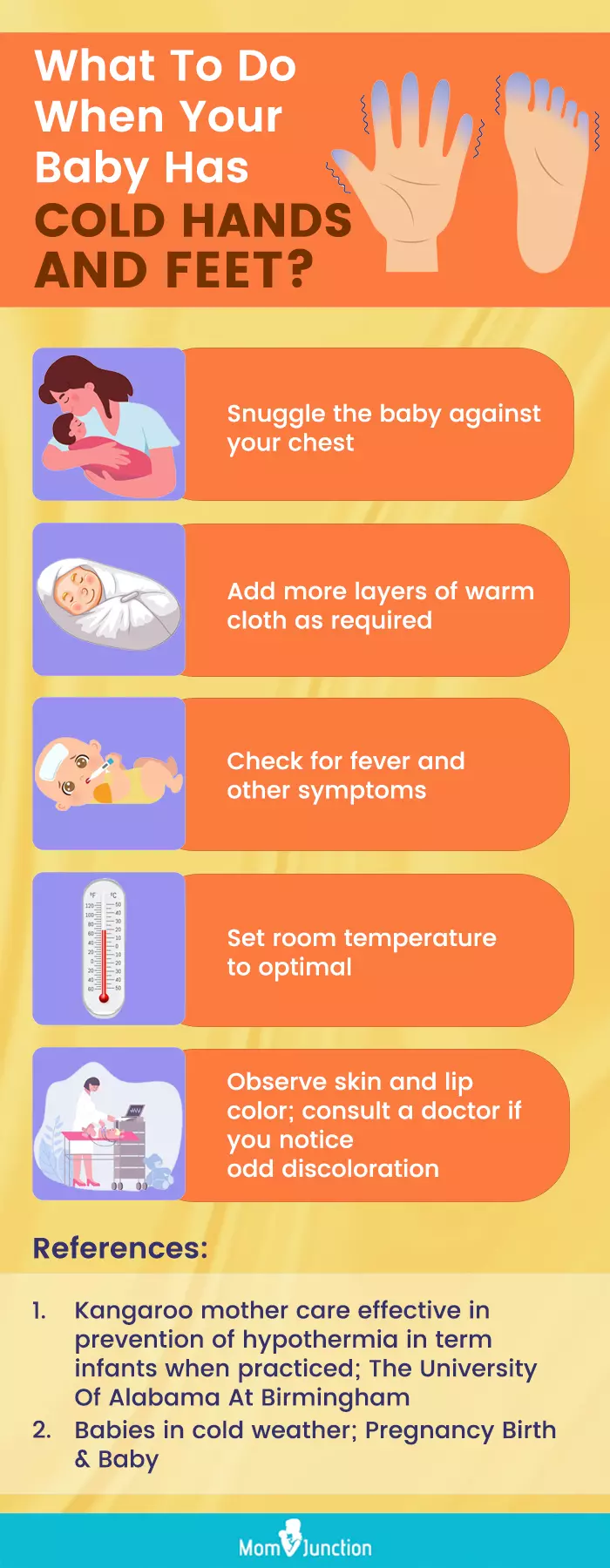
Illustration: Causes Of Cold Hands And Feet In Baby & Ways To Deal

Image: Dall·E/MomJunction Design Team
Help keep your baby’s hands warm at night without overheating the rest of their body. Learn tips and tricks to keep your little one comfortable.
References
1. Anna Lubkowska, Sławomir Szymański, and Monika Chudecka; Surface Body Temperature of Full-Term Healthy Newborns Immediately after Birth—Pilot Study; International Journal of Environmental Research and Public Health
2. Warmth and Temperature Regulation; Children’s Hospital of PhiladelphiaTerms
3. Skin Color Changes in the Newborn; Saint Luke’s Hospital
4. Sepsis in Infants & Children; Healthychildren.org
5. Childhood Fevers: Your Questions Answered; Gleneagles Hospital
6. Your Guide to Childhood Illnesses; NHS
7. Symptoms Checker for Babies; Meningitis Research Foundation
8. Congenital Heart Diseases; Cedars Sinai
9. Kangaroo mother care effective in prevention of hypothermia in term infants when practiced; The University Of Alabama At Birmingham
10. Michiko Kyokan et al; (2023); Early detection of cold stress to prevent hypothermia: A narrative review; National Center for Biotechnology Information
11. Swaddling: Is it Safe for Your Baby; ?; American Academy of Pediatrics
12. How to take your baby’s temperature; NHS
13. O. G. Brooke; The response of malnourished babies to cold; NCBI
14. Babies in cold weather; Pregnancy Birth & Baby
Community Experiences
Join the conversation and become a part of our nurturing community! Share your stories, experiences, and insights to connect with fellow parents.
Read full bio of Dr. Dur Afshar Agha
- Dr. Joanna E. Perdomo is a pediatrician working at Nicklaus Children’s Pediatric Care Centers. She earned her medical degree from the University of Chicago Pritzker School of Medicine and completed the Boston Combined Residency Program in Pediatrics. She also earned a master of public health from the Harvard T.H. Chan School of Public Health.
 Dr. Joanna E. Perdomo is a pediatrician working at Nicklaus Children’s Pediatric Care Centers. She earned her medical degree from the University of Chicago Pritzker School of Medicine and completed the Boston Combined Residency Program in Pediatrics. She also earned a master of public health from the Harvard T.H. Chan School of Public Health.
Dr. Joanna E. Perdomo is a pediatrician working at Nicklaus Children’s Pediatric Care Centers. She earned her medical degree from the University of Chicago Pritzker School of Medicine and completed the Boston Combined Residency Program in Pediatrics. She also earned a master of public health from the Harvard T.H. Chan School of Public Health.
Read full bio of Dr Bisny T. Joseph
Read full bio of Rohit Garoo
Read full bio of Shinta Liz Sunny












